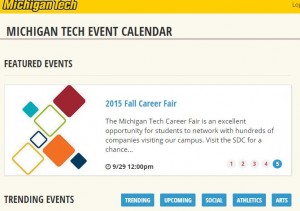What is important to you at age 3 is different than what is important to you at age 30. Similarly, when students are 20 years old, their priority is to get that first paycheck. Up until graduation, their largest decision was which college to attend. Now, after studying for countless hours, they are transitioning from being a student to joining the “real world” that they have longed for since becoming a teen.
I remember my first paycheck after I graduated. I couldn’t wait to get that check. In fact, I bought a stereo that was bigger than my car and just financed it because I knew I would have cash in my checkbook soon enough. (I should have read the details on the financing arrangements, but that is a different story!)
In many Informational Sessions, companies talk about their rank in the Fortune 500, their medical benefits, the matching percentage of the 401(k) program, etc. These are all important pieces of information. They are crucial to an employee who has a mortgage, car payments, a wedding to pay for, and family medical deductibles. But, we are getting ahead of ourselves.
However, at age 20 or 21 – students are more interested in the projects they will be working on. They can’t quite imagine retirement because they haven’t even started a job yet! In your information session, don’t forget to focus on what is front-and-center in the kid’s minds “What will I be doing every day?”
As I listen in to different Informational Sessions and talk to students afterwards, they want to know what they are going to “do”. Michigan Tech students have a reputation for being practical, hands-on, get-it-done employees. Help them visualize what that looks like by sharing descriptions of projects that your interns are doing, projects the full time employees are working on. Share projects that were success and failures. Put all of this in context so students can understand what it is like to work for your company. You will find that they are much more engaged and find it easier to ask questions.

